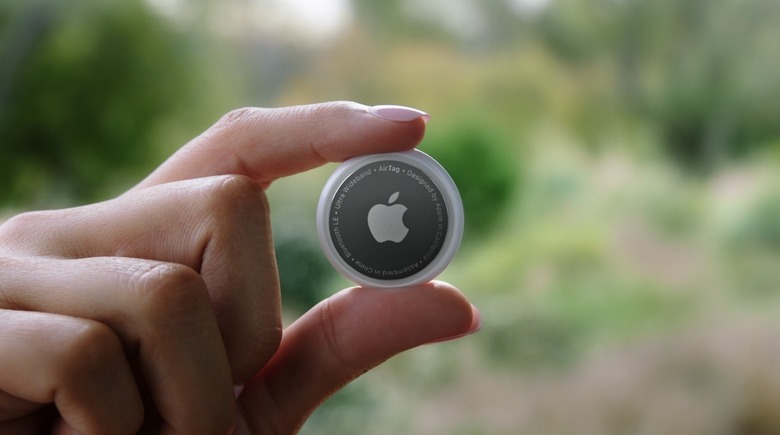Apple Finally Unveiled The AirTag Trackers We've Been Waiting For
We've been waiting for Apple to unveil the AirTag trackers for more than a year, but Apple never pulled the trigger. The AirTags are small, circular devices that can be attached to various objects via specialized accessories. They connect via Bluetooth and ultra wideband (UWB) to the Apple devices in their vicinity. This link would allow anyone to use an iPhone for tracking objects that do not have an active internet connection. They're similar to Tiles and other trackers already available in stores. Samsung launched its own trackers earlier this year.
Apple's Find My app already lets users keep track of their various Apple devices, including iPhone, iPad, Apple Watch, and Mac. AirTags will allow users to also track keys, wallets, pets, and any other object they might want to ensure they don't lose.
Apple expanded the Find My Network Accessory program a few weeks ago to include various third-party products that could be tracked inside the app. Those products will not require AirTags, as they feature built-in Bluetooth and UWB connectivity.
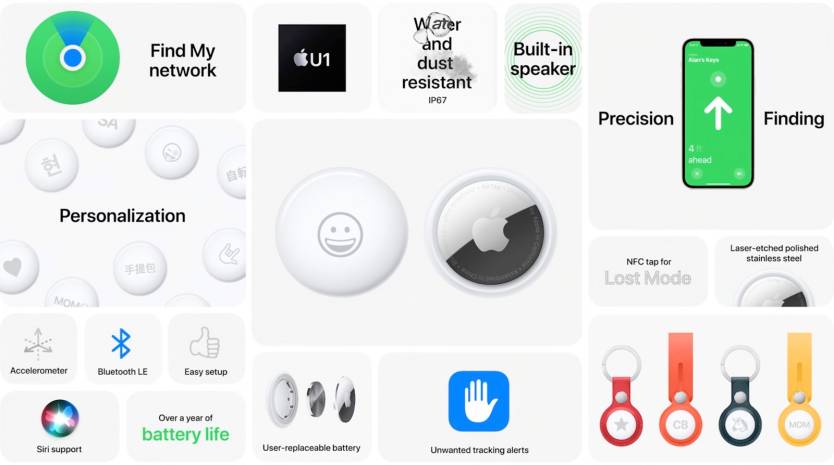
The features of Apple's new AirTag trackers.
Apple on Tuesday confirmed the new product's design, which was leaked several times in the past year. The UWB trackers look like bottle caps, and they'll fit inside customized keychains that need to be purchased separately. Several accessory makers have already created products that would work with the AirTags, which also leaked before Apple's Spring Loaded event.
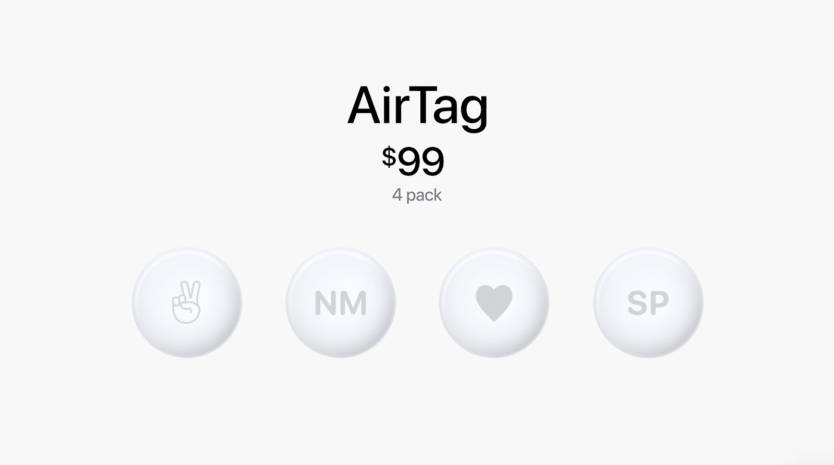
Apple AirTags bundle price.
To use AirTag trackers, customers will need to pair them with an iPhone running iOS 14.5 or later. iOS 14.5 has been in beta for a few months, teasing the imminent arrival of AirTags.
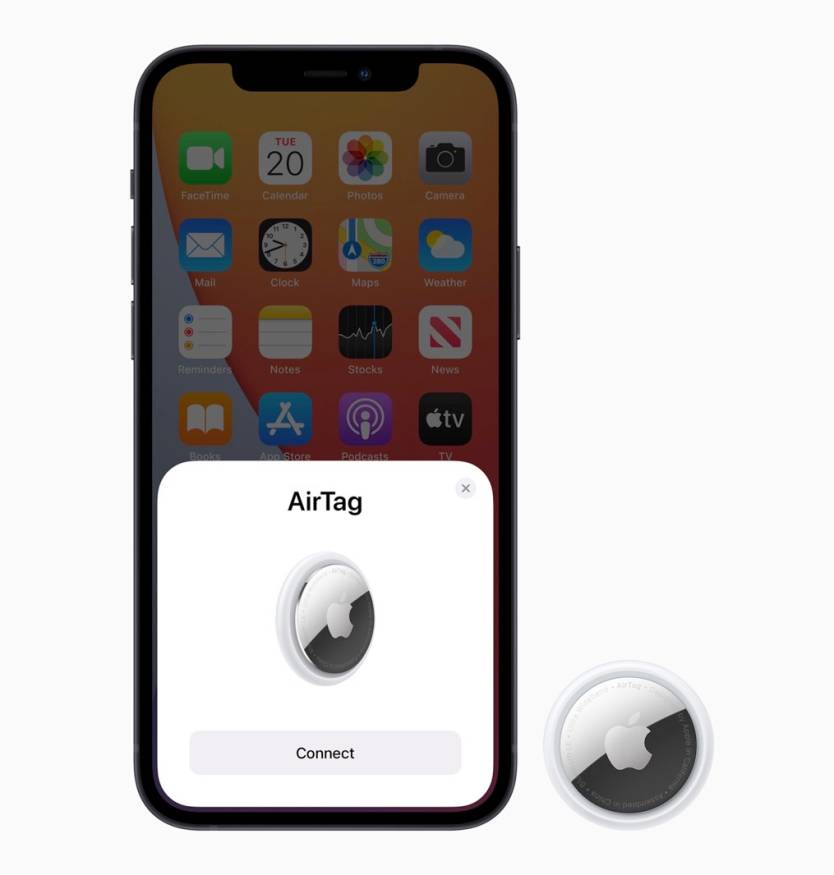
Pairing up an AirTag with the iPhone.
Once enabled, a tracker will show up on the map inside the Find My application, just like any other iPhone, iPad, Watch, or Mac.

Apple AirTags and accessories.
The AirTags are water and dust-resistant, and they feature a built-in speaker that will play a sound to pinpoint the location of a lost object.
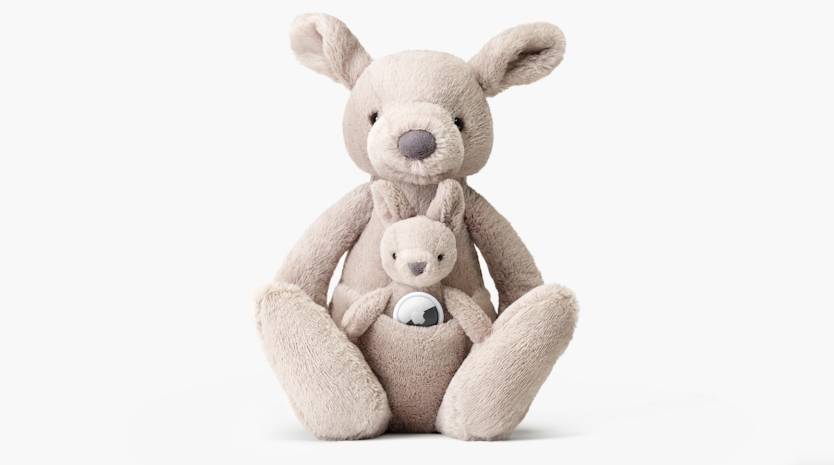
AirTag used with a stuffed toy.
The advantage of UWB tracking, first introduced with the iPhone 11 and iOS 13, is that it allows users to track their belongings even without an internet connection. The technology leverages the billions of iOS devices in the world to detect a lost or stolen device, whether it's an iPhone or an AirTag-connected object. AirTagged objects will ping nearby devices via Bluetooth, and the exchange of information will allow accurate location information.
Tracking objects with UWB rather than Bluetooth also leads to improved location accuracy. UWB trackers should also be more energy-efficient than trackers relying solely on Bluetooth or Wi-Fi connectivity.
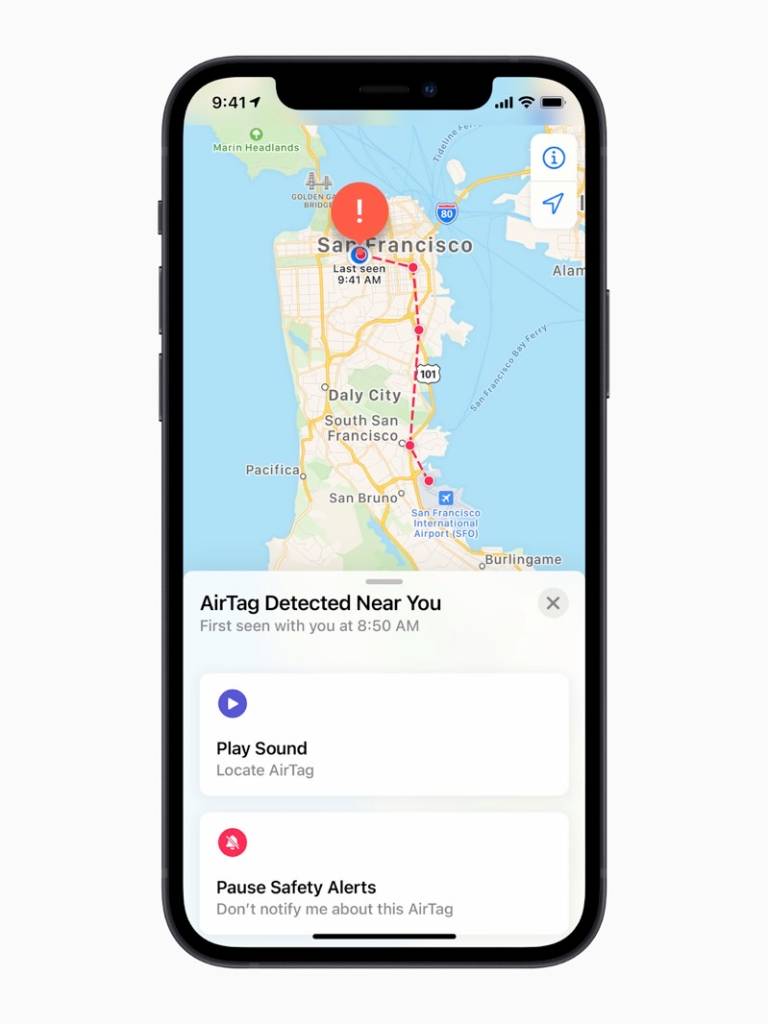
Privacy warning tells an iPhone user that an unknown AirTag is traveling with them.
iOS 14.5 includes privacy protections that will prevent people with malicious intentions from tracking the location of unsuspecting victims. Should an attacker place an AirTags tracker on someone else's belongings to follow their movements via the Find My app, the victim's iPhone will inform the owner that a tracker not belonging to them is in their proximity. It's unclear what happens if the victim doesn't own an iPhone, however.
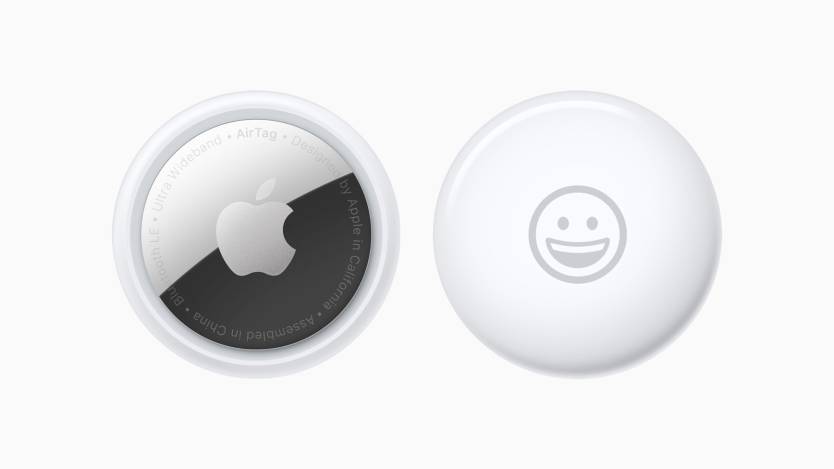
Apple AirTag design: Back and front.
AirTags will not store any location data, and data transmission is end-to-end encrypted. Apple explains that nobody will know the identity or location of any device that helped find a lost object. It all happens privately and anonymously.
AirTags will also rotate Bluetooth signal identifiers to improve privacy, which Apple says it's an industry first.
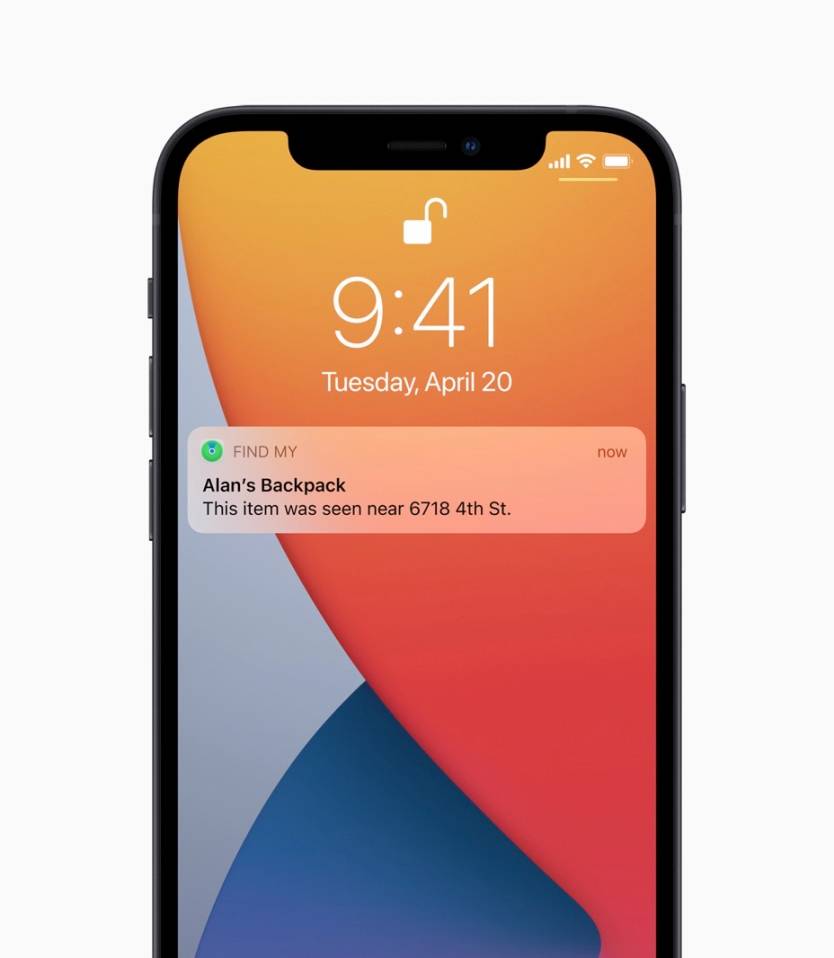
Notification informs the user about the last known location of an AirTag object.
The screenshot above shows what a notification will look like when a lost item is detected. The owner of the object would have to mark it as lost in the Find My app for other Apple devices to detect it.
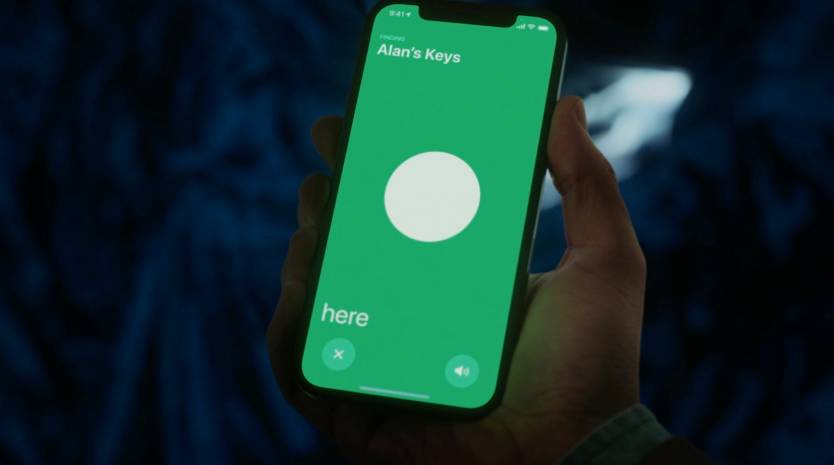
The downside of AirTags seems to be that they won't work if there's no other iOS or macOS device around to ping.
"If a lost AirTag is found by someone, they can tap it using their iPhone or any NFC-capable device and be taken to a website that will display a contact phone number for the owner, if they have provided one," Apple explained in a press release.
The AirTags battery lasts for over 12 months, and it's user-replaceable.
AirTags will be available to order on Friday for $29 (one tracker) or $99 (a pack of four). The AirTags launch in stores on April 30th
